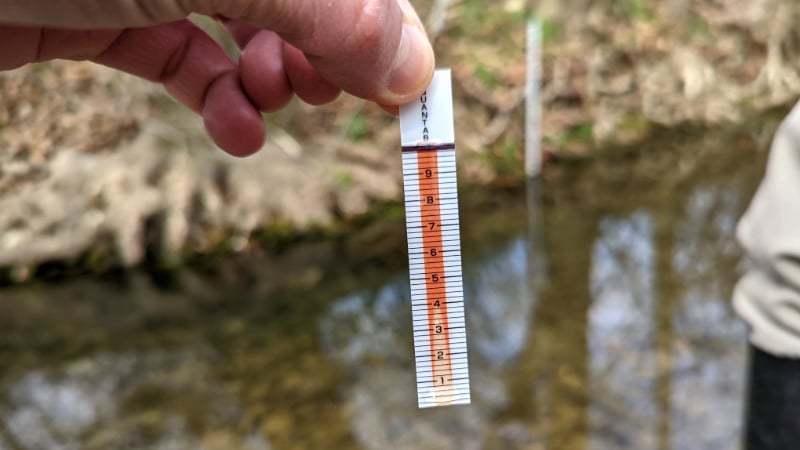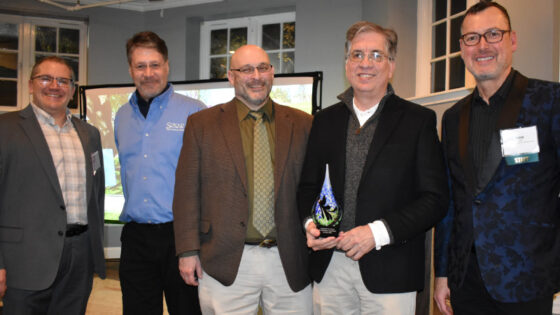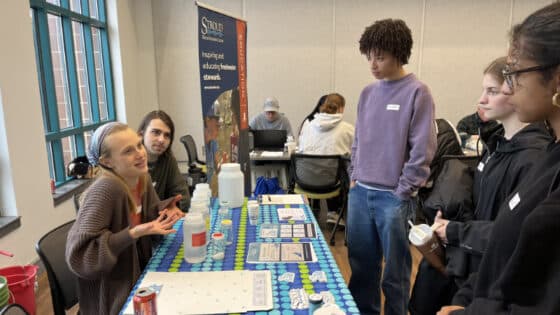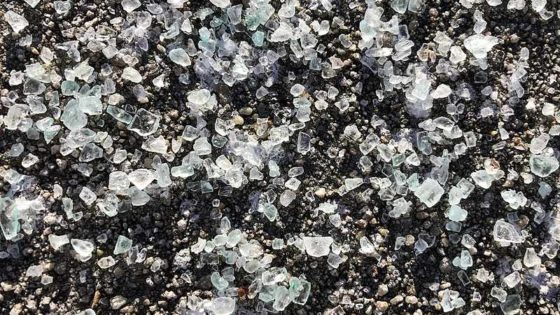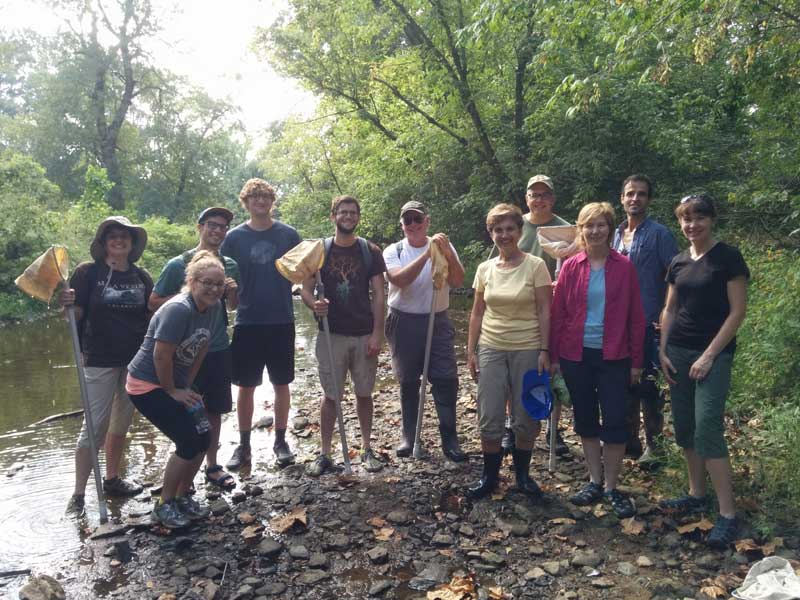
By Diane Huskinson
“I’ve always been a bit of an environmentalist personally, doing what I could with the time that I had. Now I have more time on my hands,” says Jeff Chambers, who retired from DuPont last year. A chemist by training, he is now one of more than a dozen volunteers learning how to monitor the health of streams in First State National Historical Park in Delaware through The Nature Conservancy’s Stream Stewards Program.
“When I heard about this program, it seemed like a perfect match,” he says.
The Goal: Protect and Restore Water Quality
Kim Hachadoorian is managing the program for The Nature Conservancy, in partnership with First State National Historical Park. She says volunteer training is just beginning and that more volunteers will be trained to monitor five of the eight streams that run into Brandywine Creek within the park. “The first step,” she says, “is to collect baseline data, getting a good characterization of the water quality in those streams. The goal is to protect good water quality where we have it and improve degraded streams through land management.” Although some of the volunteers, like Chambers, have science backgrounds, many do not.
“Becoming a citizen scientist is a process,” says Hachadoorian. “Training and evaluation are important to track the progress of volunteers as they learn how to follow the scientific method.”
With a third of the park’s land leased for farming, Hachadoorian expects a big part of the restoration effort will be to partner with farmers to improve cropland and farmyard management and install best management practices, such as streamside forests, that have been proven to protect and restore waterways. “After that, we can continue with follow-up monitoring to determine the impacts those changes on the land are having on water quality. The great part about doing citizen science within the national park is that it’s a welcoming space where the public can learn about how volunteers are protecting clean fresh water.”
The William Penn Foundation is funding the Stream Stewards Program, and others like it, through its multimillion-dollar Delaware River Watershed Initiative (DRWI) that is supporting more than 50 leading nonprofits working together to reduce threats to water quality for the 15 million people — more than 5 percent of U.S. population — who get their drinking water from the Delaware River basin.
The initiative targets eight subwatersheds, or clusters, that make up 25 percent of the Delaware River basin and are of critical ecological value. A science-informed evaluation under the initiative showed that while these clusters face significant threats to water quality,the opportunity for successful intervention at these locations is great.
Stroud Water Research Center is helping guide the effort under a William Penn Foundation grant by working with DRWI partner organizations like The Nature Conservancy to grow their network of volunteers and enhance the quality and quantity of the data they collect.
Watershed 101
One way the Stroud Center is doing that is through the “Watershed 101” workshops, which teach the volunteers about the physical, chemical, and biological processes that keep streams and rivers healthy.
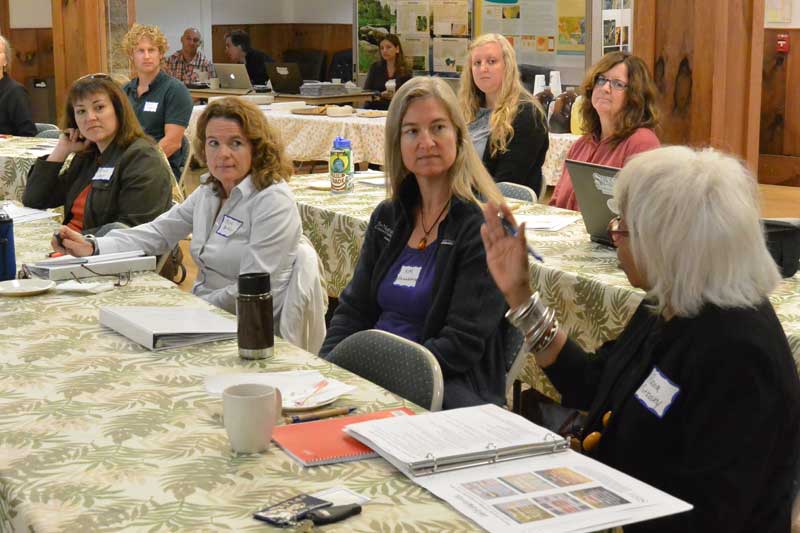
Chambers attended one of the three-day workshops and was struck by the close relationship between land and water:
“I’ve been learning how everything fits together in the environment we live in, how everything we do on the land affects our water resources, and how the bugs and fish you find in a stream can tell you about the health of that stream. The bugs get their food from the trees along the stream, and the fish eat the bugs,and it all fits together.”
Hachadoorian says, “The volunteers come from diverse backgrounds. Some are retired. Some are young adults just starting out in their careers. But what they have in common is that they are all interested in a really meaningful volunteer experience. Yes, it sounds like fun to go out into the streams and collect data samples, but what they’re really interested in is stewardship. They want to make a difference in their local communities, and with this program, we will be using the data they collect to better manage the land within the park.”
“These trainings will help citizen scientists better understand what questions they should be asking and why,” says Matthew Ehrhart, the Stroud Center’s director of watershed restoration,“Plus they’ll learn how to analyze and interpret the monitoring data they collect so they can use it to guide future restoration and conservation work.”
David Bressler, the Stroud Center’s citizen science project facilitator, says that “Watershed 101” is a foundational workshop, and more specialized trainings on things like monitoring technologies are also being offered to the cluster groups and their volunteers.

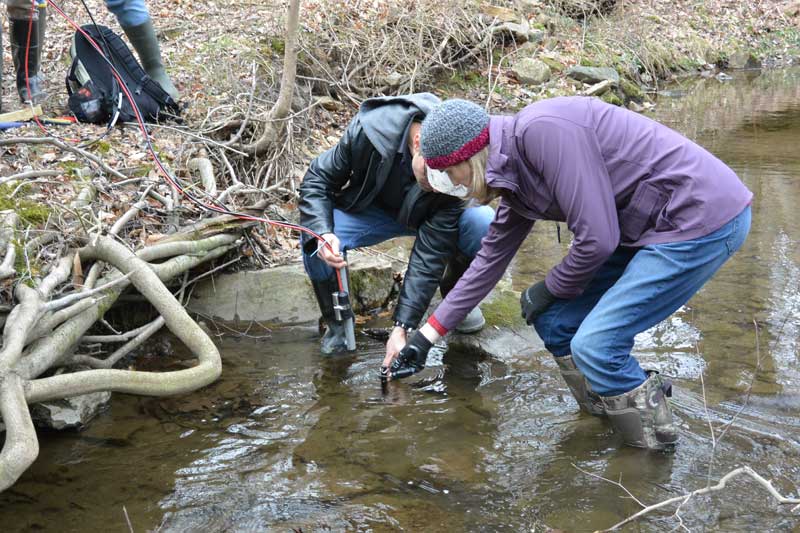
Do-It-Yourself Environmental Monitoring
Some of the volunteers are already learning to build and deploy do-it-yourself wireless environmental monitoring stations the Stroud Center recently developed. These inexpensive, customizable, and easy-to-use sensors are featured on EnviroDIY.org, an online community of enthusiasts who share ideas for environmental science and monitoring. (EnviroDIY™ is part of the WikiWatershed® online toolkit presented by Stroud Water Research Center.) With these devices, the citizen scientists will be able to measure water temperature, streamwater level, electrical conductivity, water clarity, and more.
The William Penn Foundation’s Director of Watershed Protection, Andrew Johnson, says, “The goal of DRWI citizen science is to, not only engage the public with conservation, but train and deploy volunteers to generate meaningful, professional-quality water data that can be shared more broadly across the watershed.”
The data the citizen scientists collect will stream automatically to a web portal where they can easily visualize, analyze, and download the data they and their fellow volunteers throughout the Delaware River basin collect.
“In the years ahead,” says Chambers, “I believe those of us who care deeply about our environment will increasingly turn to organizations like the William Penn Foundation, Stroud Water Research Center, the National Park Service, and The Nature Conservancy to protect our natural resources. With their help and guidance, it will be us, the citizens and citizen scientists, who will become the stewards of our air, land, and water.”
Related News
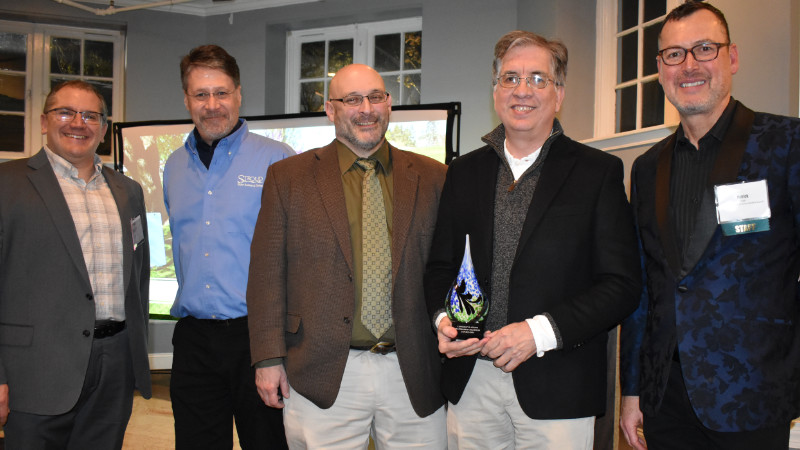
Stroud Center Named Watershed Champion by Philly–Area Collaborative
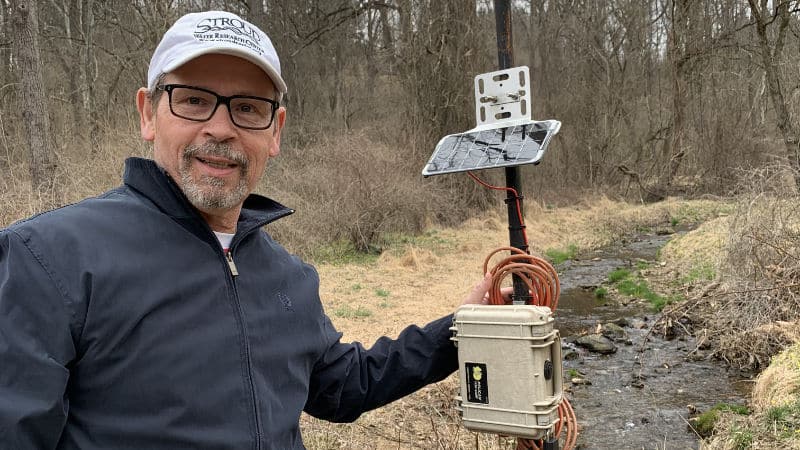
Study: Community Science Can Aid Water Resource Monitoring
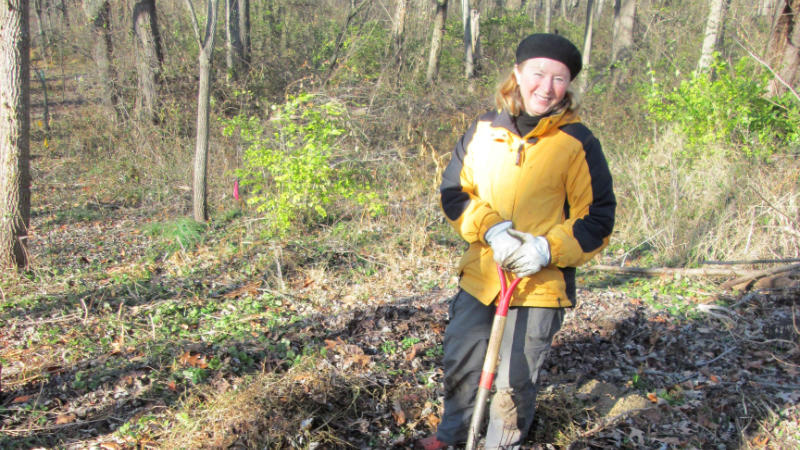
Volunteering With Scientists Changed How I Advocate for Clean Streams
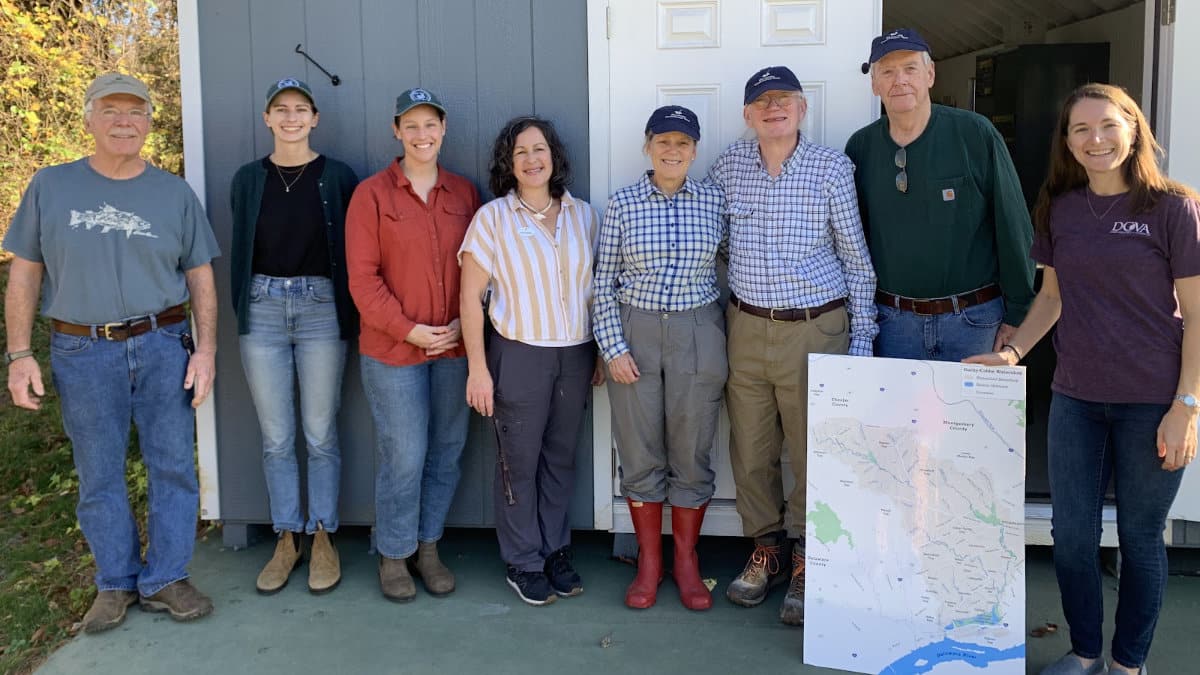
We, the Community Scientists
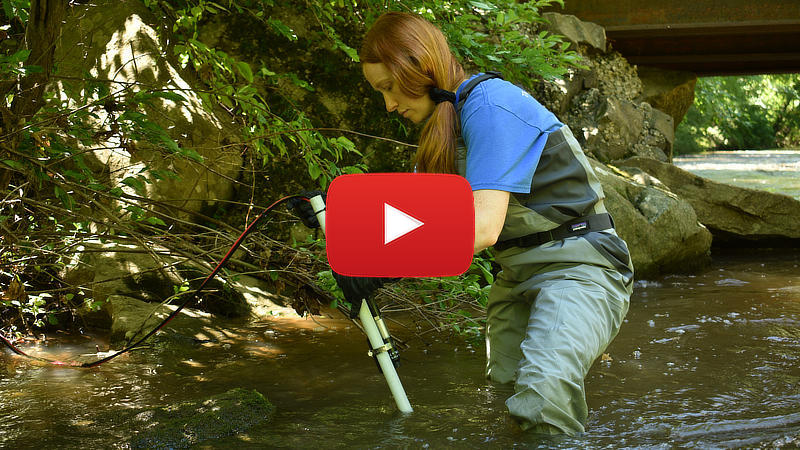
EnviroDIY in the Delaware River Basin
